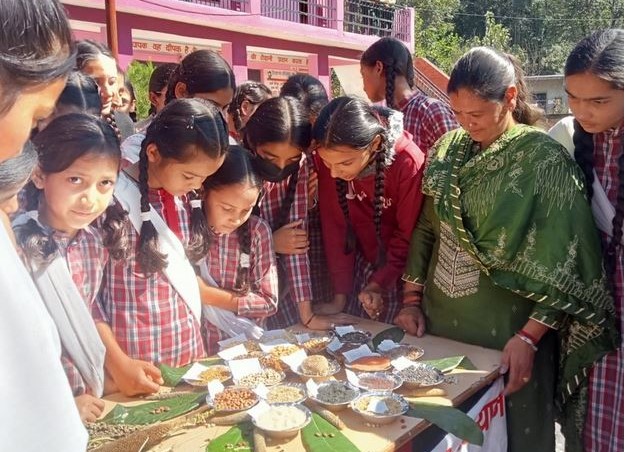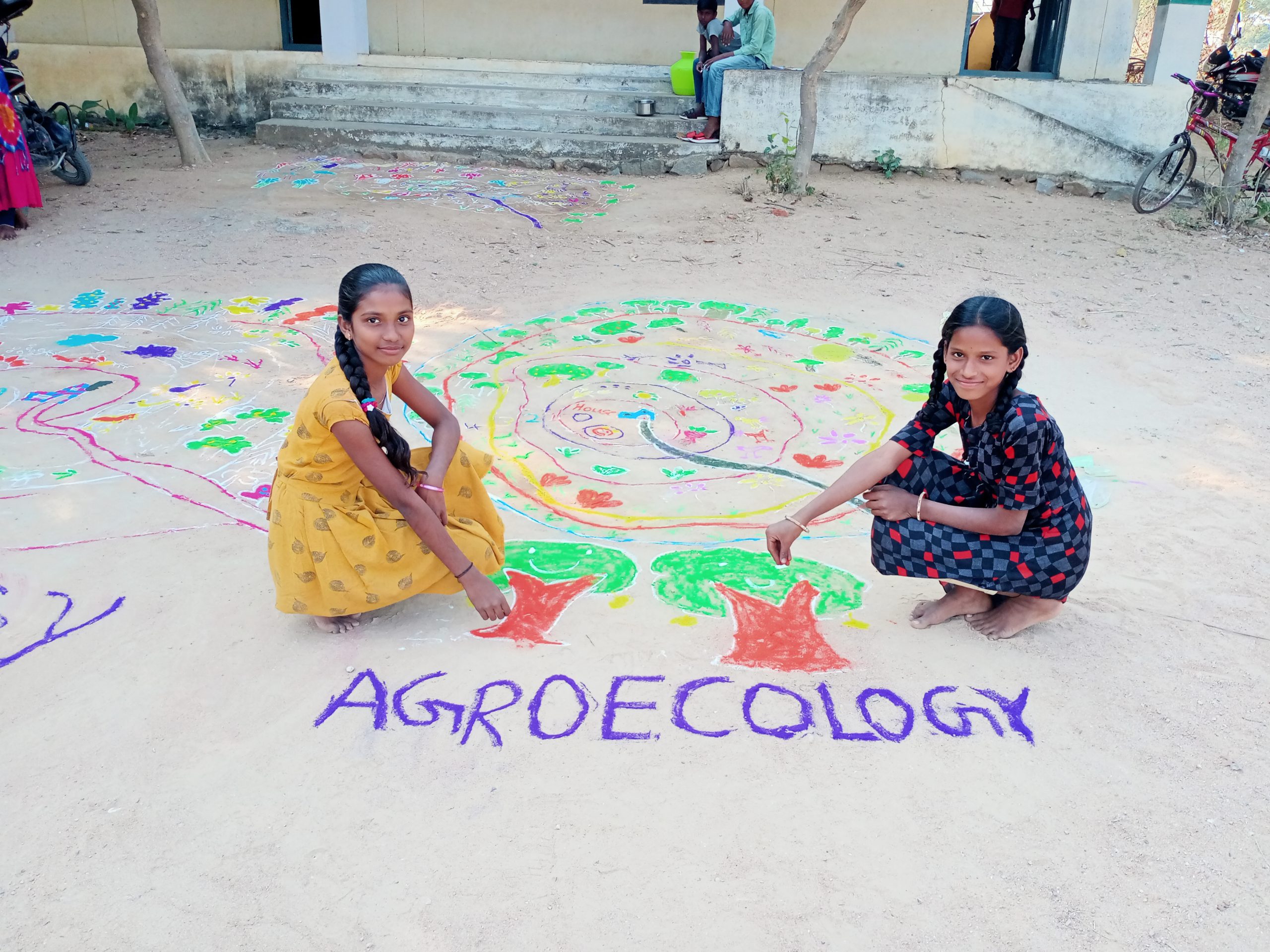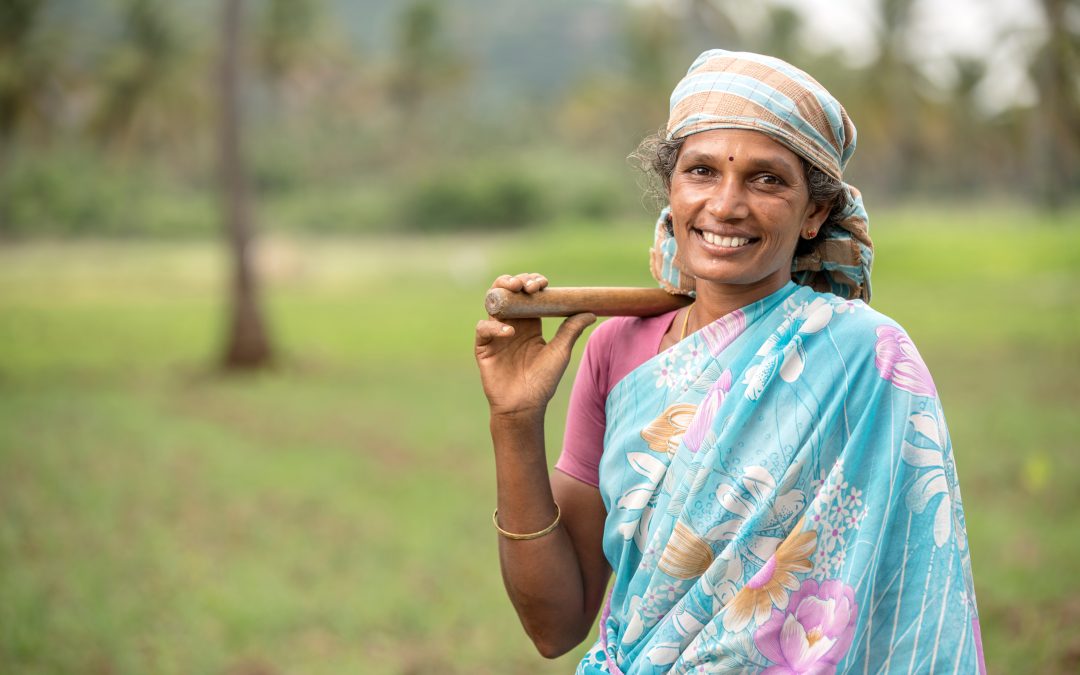On International Women’s Day, we explore the link between agroecology and gender equality through member initiatives.
March 8th presents an opportunity to reflect on gender equality and the status of women. It is important to reflect on gender in agriculture because women play an essential role in the food system; however, despite their crucial contribution, they are not yet sufficiently empowered to thrive in it.
Agroecology has the potential to address some of these inequalities by empowering women: this can take various forms, such as their improved health, land ownership, financial gains, and participation in decision-making.
We have collected a variety of tools and initiatives from our members to reflect on the gender aspect of agroecology.
Projects:
The HimRRA Network (Himachal Pradesh branch of the national Revitalizing Rainfed Agriculture Network) (India) has been implementing since 2018 the project” Resilience through biodiverse cropping and millet recipes driven by Indian women network” highlighting the critical role of women – who often are caretakers and food-preparers, to improve dietary diversity, nutrition, and overall well-being for all, by having access to nutritious ingredients. In this project, women farmers were interested in natural farming and created new recipes, including some based on traditional preparations, preserving culinary traditions. Protecting and improving rural livelihoods, equity, and social well-being is essential for sustainable food and agricultural systems.

Picture credits: D.K Sadanha
SWISSAID (Switzerland) is carrying out the project Consumption of Resilient Orphan Crops & Products for Healthier Diets (CROPS4HD) to improve food security and nutrition of smallholder farmers, especially women, through sustainable use and conservation of farmers’ varieties/landraces, neglected and underutilised species respecting agroecological approaches. CROPS4HD is a holistic agroecological project that takes into account all the ten elements/13 principles of agroecology. And, as part of their strategy, they decided to add a 14th principle on gender to further underscore how essential this dimension is.

Picture Credits: Swiss Aid
DKA Austria is one of the members of the Rights-based and Agroecological Initiatives for Sustainability and Equity in Peasant Communities (RAISE) Consortium RAISE which was launched in January 2022 to support the agroecological transition and implement the rights of peasants as enshrined in the UN Declaration on the Rights of Peasants (UNDROP) in India, Nepal, Kenya, Niger, Mali, Burkina Faso and South Africa. The project is financed by the Swiss Agency for Development and Cooperation (SDC), and one of the primary beneficiaries are women. As part of this, Rural Women Assembly organised feminist agroecology trainings.

Picture credits: Youth for Action
Articles and publications:
GIZ (Germany) published the Coffee table book “Changemakers of agroecological transformation,” showcasing the diverse experiences of women farmers across the country to commemorate the International Day of Rural Women on October 15th, 2023. This book showcases women farmers as role models and change agents in the transformation process. It has been a collective exercise and a joint journey with GIZ’s partners.
Biovision published the interview “Engaging women farmers is the key to our success,” in which the founders of Biovision’s partner organisation, Soils, Food and Healthy Communities (SFHC), Esther Lupafya and Rachel Bezner Kerr, discuss gender norms, the power of knowledge exchange, and participatory research.
CGIAR and the Agroecology TPP published the paper “Gender Matters in Agroecology” (2022), outlining key gender issues that must be addressed to achieve an equitable and sustainable agroecological transition.
In a Women’s Day 2023 blog post, the Global Alliance for the Future of Food featured the Andhra Pradesh Community-Managed Natural Farming (APCNF). As they write in the post, “Women’s groups in Andhra Pradesh have been a social platform where women come together to pressure change, improve local livelihoods, and enforce community accountability. In the case of natural farming, this social capital creates dynamics of trust and strong relationships that have helped to spread the knowledge and practice of natural farming methods.” This successful story is also told in this podcast (2024) by Vijay Kumar (India).
Focus on specific organisations:
Agroecology Europe set up a Working Group on Gender and Intersectionality in 2022 following the principle that to reach tangible change, organisations can start by including gender and intersectional perspectives into their organisational structure. The Working Group began by discussing key topics such as feminism, gender transformational toolkits, and feminist economics and inviting speakers to share their opinions and experiences in setting up gender departments within their organisations. The Working Group also assessed the state of play of gender transformation within Agroecology Europe to define an action plan to enhance the situation in the future. They are now working on a toolkit on how to host feminist, gender-inclusive and intersectional events.
The Indigenous Women and Girls Initiative, funded by the Agroecology Coalition co-chair Monicah Yator, is a women-led community-based organisation based in Baringo, Kenya. Among their activities for women’s empowerment they organise workshop on agroecology for women on livelihood diversification through organic farming to build their resilience to climate change and boost nutrition.
We have also explored the topics of “Women, Agroecology and Food Systems Transformation” in a webinar on March 5th with the Agroecology Coalition co-chairs Monicah Yator and Madeleine Kaufmann. We explored, among other points, the opportunities that agroecology is creating in Kenya for women, what is Switzerland doing to advance the gender dimension in agroecology, and the work of the Indigenous Women and Girls initiative.




